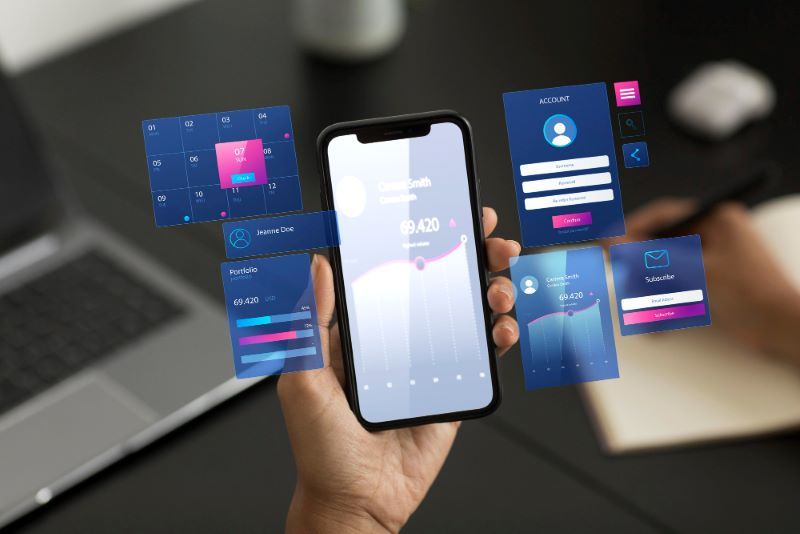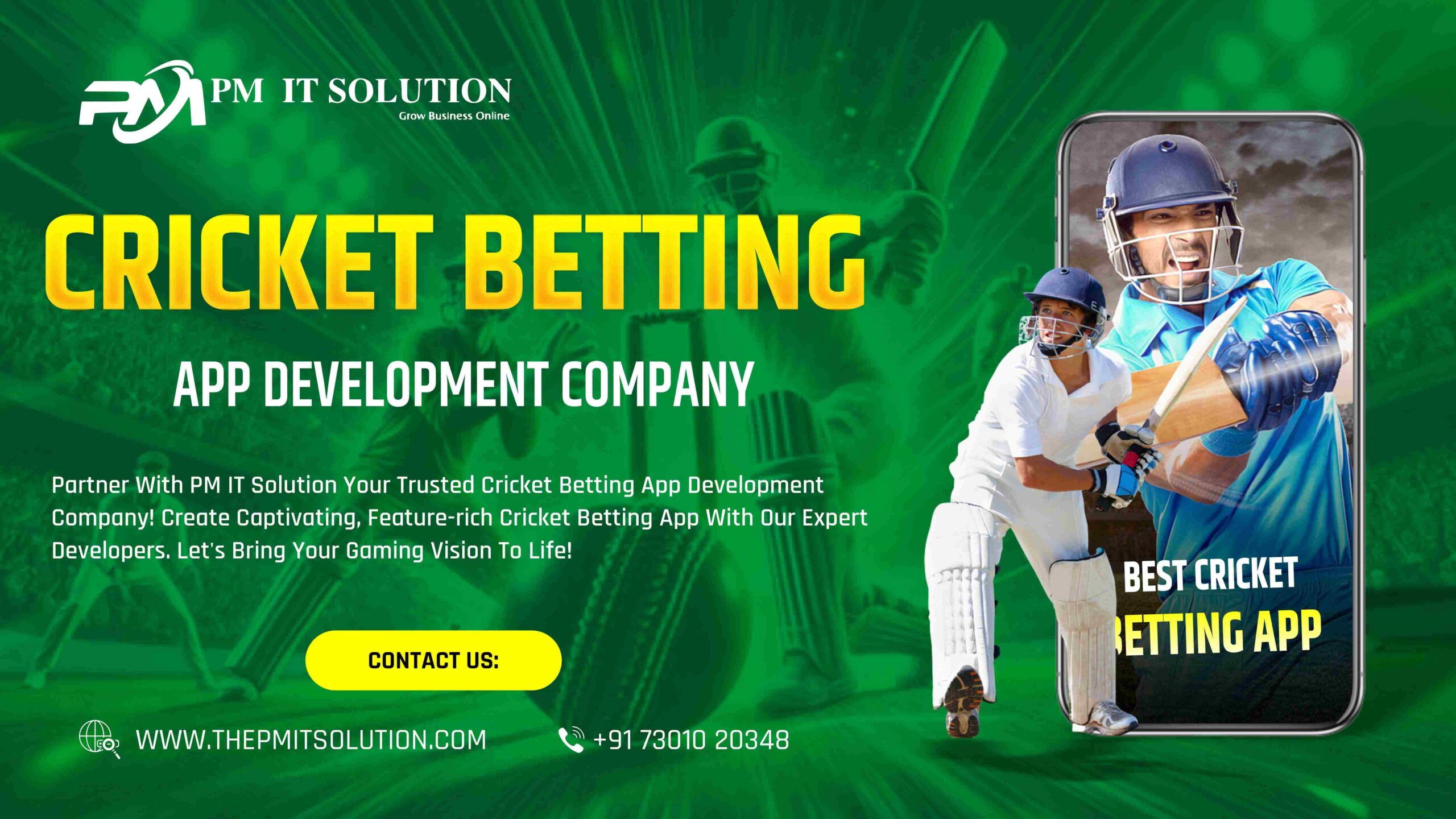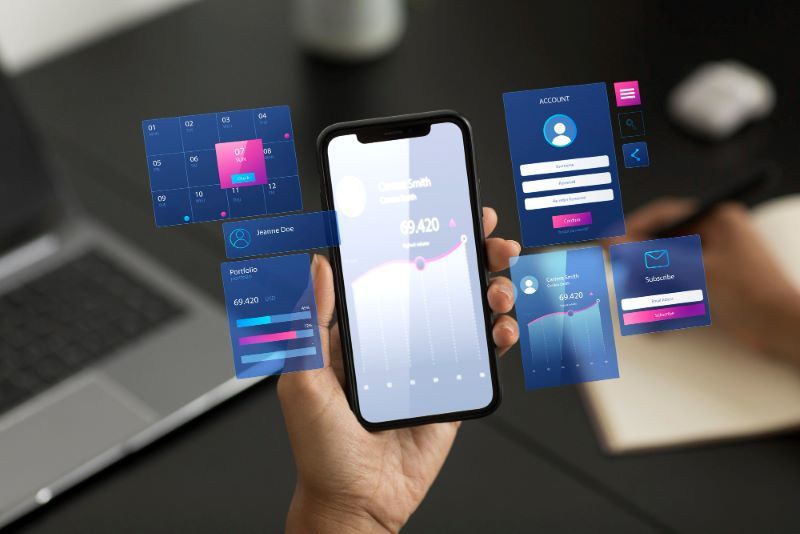Introduction
The world of technology is evolving rapidly, and one of the most exciting advancements in recent years is virtual reality (VR). As VR technology continues to grow, so does the demand for skilled VR app developers. These professionals are at the forefront of creating immersive experiences that redefine industries ranging from gaming to healthcare, education, and enterprise solutions.
With the increasing popularity of VR, businesses are seeking reliable VR development services to create innovative applications. Additionally, augmented reality (AR) is also playing a crucial role in enhancing virtual experiences, leading to the rise of AR development companies that provide integrated solutions. In this article, we will explore the key trends and technologies shaping the VR industry and how VR app developers are driving innovation.
The Growing Demand for VR App Developers
The rise of VR technology has created a significant demand for VR app developer. Companies across various industries are investing heavily in VR solutions to enhance customer experiences, improve training programs, and streamline business operations.
Industries Benefiting from VR Development Services
- Gaming and Entertainment – VR gaming is one of the most prominent sectors, with developers creating immersive and interactive experiences for users.
- Healthcare – Medical professionals use VR for patient treatment, surgical training, and rehabilitation programs.
- Education and Training – Schools and businesses use VR for interactive learning experiences and employee training.
- Real Estate and Architecture – VR allows clients to explore properties and designs before construction begins.
- Retail and E-commerce – Companies use VR to create virtual shopping experiences and personalized product demonstrations.
Key Trends Shaping the VR Industry
1. Advancements in VR Hardware
The development of high-quality VR hardware is driving the industry forward. Companies like Oculus, HTC, and Sony continue to release advanced headsets with improved resolution, reduced latency, and enhanced user comfort. Wireless VR headsets and standalone devices are making VR experiences more accessible to a broader audience.
2. Growth of Cloud-Based VR Solutions
Cloud computing is playing a crucial role in VR app development. Cloud-based VR solutions allow developers to store and process data remotely, reducing the need for high-end local hardware. This trend is particularly beneficial for businesses that require large-scale VR applications.
3. Integration of AI in VR Applications
Artificial intelligence (AI) is enhancing VR experiences by improving real-time interactions and personalization. AI-driven VR applications are used in customer service, training simulations, and content recommendations based on user behavior.
4. Expansion of AR and VR Integration
The integration of augmented reality (AR) and VR is creating mixed-reality experiences that combine digital elements with the real world. This trend is particularly popular in industries like retail, healthcare, and manufacturing. AR development companies are working alongside VR app developers to create seamless mixed-reality applications.
5. Rise of 5G and VR Streaming
The implementation of 5G networks is revolutionizing VR by providing faster data transfer speeds and lower latency. This advancement is enabling high-quality VR streaming, making it easier for users to access VR content on mobile devices.
6. Enterprise VR Applications
More businesses are adopting VR for corporate training, virtual meetings, and remote collaboration. VR solutions help companies reduce costs, enhance productivity, and improve employee engagement.
Technologies Powering VR App Development
1. Game Engines (Unity and Unreal Engine)
Unity and Unreal Engine are the two most popular platforms for VR development. These engines provide powerful tools and libraries that allow developers to create realistic and interactive VR experiences.
2. Haptic Feedback and Motion Tracking
Advancements in haptic feedback and motion tracking are making VR experiences more immersive. Devices like VR gloves, motion controllers, and full-body tracking systems are enhancing user interaction within virtual environments.
3. Spatial Computing and LiDAR Technology
Spatial computing and LiDAR (Light Detection and Ranging) technology are being used to create highly accurate 3D maps and interactive environments. These technologies are essential for industries like real estate, architecture, and navigation.
4. Blockchain and VR
Blockchain technology is being integrated into VR applications to enhance security, digital asset ownership, and decentralized marketplaces. The use of NFTs (Non-Fungible Tokens) in VR spaces is also gaining popularity in the entertainment and gaming sectors.
5. XR Development Platforms
Extended Reality (XR) development platforms are enabling seamless integration of VR, AR, and mixed reality (MR) experiences. Companies offering VR development services are leveraging these platforms to create multi-functional applications.
The Role of AR Development Companies in the VR Ecosystem
AR development companies play a vital role in complementing VR experiences. By integrating AR and VR technologies, these companies are helping businesses create versatile applications that enhance user engagement. From AR-based navigation systems to VR-powered virtual showrooms, the combination of these technologies is expanding the possibilities of immersive experiences.
Future of VR App Development
The future of VR app development looks promising, with continuous advancements in hardware, software, and connectivity. Some key areas of growth include:
- Metaverse Development – Tech giants like Meta (formerly Facebook) are investing in metaverse projects that rely on VR for social interactions, gaming, and virtual economies.
- Neural Interfaces – Brain-computer interfaces (BCIs) are expected to play a significant role in the future of VR, allowing users to control applications using neural signals.
- VR in Smart Cities – Governments and urban planners are using VR simulations to design and test smart city infrastructures.
Conclusion
The rise of the VR app developer is transforming industries and shaping the future of digital experiences. With the continuous evolution of VR development services and AR development companies, businesses have more opportunities to create cutting-edge applications that drive engagement and innovation. As technology advances, the demand for skilled VR developers will continue to grow, making this an exciting time for those looking to enter the field.
The integration of AI, 5G, cloud computing, and spatial computing in VR development is paving the way for groundbreaking applications. Companies investing in VR technology today will have a competitive edge in the ever-expanding digital landscape. Whether for gaming, healthcare, retail, or enterprise solutions, the VR industry is set to redefine how we interact with technology and the world around us.














Leave a Reply